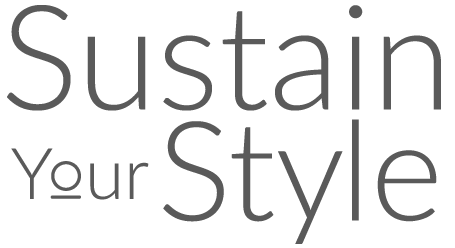In an era where sustainability and ethical practices are at the forefront of consumer consciousness, fashion and textile certifications have become crucial for brands aiming to demonstrate their commitment to these values. With a myriad of certifications available, it can be challenging to determine which one aligns best with your brand’s ethos and goals. Here, we explore some of the most recognized certifications, and outline their key features to help you make an informed decision.
1. SANE Standard
SANE is the next-gen certification for sustainable fashion products, covering environmental, workers’ rights, and consumer health aspects. SANE Standard is a multistakeholder initiative and a member of the United Nations Fashion and Lifestyle Network.
Through its standard, SANE offers a concrete definition of sustainability for fashion products, answering the new EU legal requirements as well as customer expectations regarding sustainability claims on fashion products.
SANE Standard is designed to help consumers easily identify ethically made products and support fashion brands in communicating their sustainable commitments. Its holistic approach ensures that products are not only eco-friendly but also ethically produced and safe for consumers.
SANE accepts a variety of 45 types of materials including recycled, regenerative, organic, upcycled, responsible produced.
2. Global Organic Textile Standard (GOTS)
GOTS is a comprehensive certification for organic fibers, ensuring the organic status of textiles from harvesting through environmentally and socially responsible manufacturing. GOTS certification covers all stages of production, from raw material sourcing to finished products, ensuring organic integrity and sustainability.
3. SA8000
SA8000 is a leading social certification standard for factories and organizations across the globe. Developed by Social Accountability International (SAI), it measures social performance in areas such as child labor, forced labor, health and safety, free association and collective bargaining, discrimination, disciplinary practices, working hours, and remuneration. SA8000 is ideal for brands looking to ensure ethical treatment of workers throughout their supply chains.
4. Global Recycled Standard (GRS)
GRS focuses on products made from recycled materials. It verifies the recycled content of products and ensures responsible social, environmental, and chemical practices in production. GRS is ideal for brands prioritizing recycling and reducing waste.
5. Fair Wear Foundation (FWF)
Fair Wear certification ensures fair labor practices in the garment industry. It focuses on improving workplace conditions and promoting fair wages, working hours, and health and safety standards. This certification is suitable for brands committed to social responsibility and workers' rights.
6. B Corporation (B Corps)
B Corps certification is for businesses that meet higher standards of social performance, accountability, and transparency. It is not specific to fashion but applies to all types of businesses committed to sustainability and social good. There are concerns about the effectiveness of impact measurement, as some believe that the certification does not always translate into substantial, tangible improvements in sustainability practices. Critics point out that some companies may use B Corps certification more as a marketing tool rather than a commitment to genuine change, diluting the certification’s value.
7. Sedex Members Ethical Trade Audit (SMETA)
Sedex provides a globally recognized audit methodology to assess labor, health and safety, environment, and business ethics. Sedex audits help brands ensure ethical practices across their supply chains. SMETA is a methodology, Sedex is a membership organisation, not certifications schemes.
8. Worldwide Responsible Accredited Production (WRAP)
WRAP certification focuses on ensuring safe, lawful, humane, and ethical manufacturing worldwide. It covers a range of labor and workplace standards and is one of the largest independent certification programs in the apparel sector, however, it is far from beeing the most ambitious one, particularly when it comes to requirements for workers' pay.
9. Better Cotton Initiative (BCI)
BCI promotes better standards in cotton farming and practices. It aims to make global cotton production better for the people who produce it, the environment it grows in, and the sector’s future. BCI is not a certification but can work for brands committed to improve slightly their cotton sourcing.
Our recommendation
While all these certifications offer significant benefits, SANE Standard stands out by covering a comprehensive range of sustainability aspects, including environmental impact, workers' rights, and consumer health. Its holistic approach ensures that products are not only environmentally friendly but also ethically produced and safe for consumers. The look and feel of SANE are also much more in tune with the expectations of fashion consumers and will not scare them. If you seek a balanced and comprehensive certification that addresses multiple aspects of sustainability, SANE Standard could be the ideal choice.
Conclusion
Choosing the right certification depends on your brand’s specific sustainability goals and values. Whether you prioritize organic materials, fair labor practices, or recycled content, there is a certification to meet your needs.
Investing in credible certifications not only enhances your brand’s reputation but also contributes to a more sustainable and ethical fashion industry.

